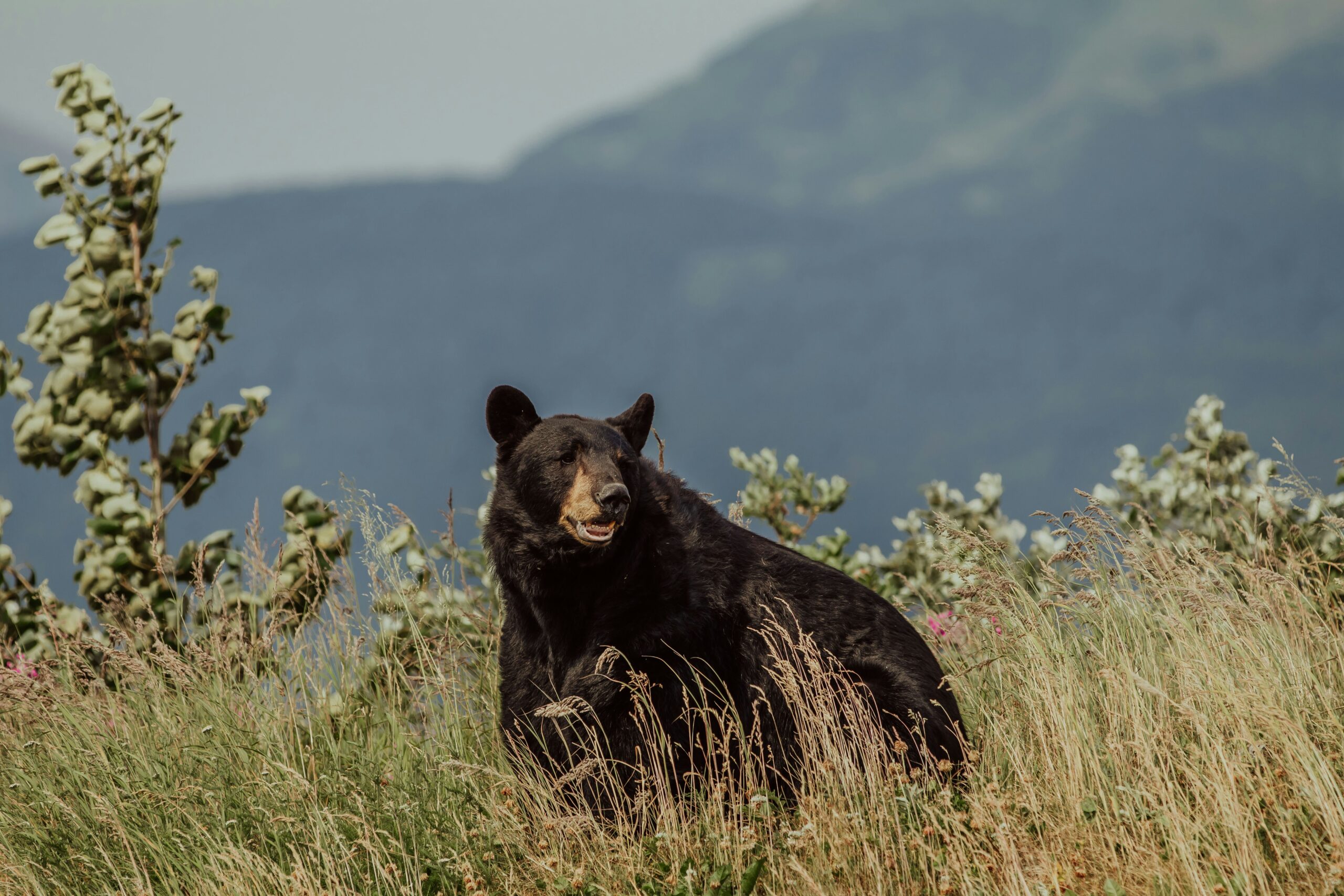Places like Forest Park, Eugene, and the City of Talent are known for frequent black bear sightings. During spring and fall, these animals become more active as they search for food. Black Bear Ridge is another area where visitors often see bears moving along animal trails near dense woods. For residents and travelers, staying aware of their presence and taking simple precautions helps maintain a safe and peaceful environment for both humans and wildlife.
Black Bear Behavior and Life in Oregon
Black bears are curious and adaptable creatures that thrive in Oregon’s environment. They have a varied diet, including berries, fruits, nuts, fish, and insects. During spring, they eat fresh vegetation, while in autumn, they focus on storing up energy by eating seeds and fruits. Their sharp sense of smell helps them locate food from far away, making it one of their strongest survival tools.
These bears are active during dawn and dusk, spending their days resting in sheltered spots. They play an important role in Oregon’s ecosystem by spreading seeds and helping forests stay healthy. While black bears are the only bear species in Oregon, their coats can range from black to cinnamon and even blonde, adding to their unique presence in the wild.
Living With Black Bears in Oregon
Sharing a habitat with black bears means taking a few precautions to keep everyone safe. Homeowners often secure garbage in bear-proof containers and avoid leaving pet food outdoors. Simple steps like cleaning up fallen fruit from trees and keeping bird feeders out of reach can make a big difference in preventing bears from approaching homes.
For gardens or compost piles, electric fencing is a helpful tool to keep bears away. Families in these areas also teach children about bear safety, like staying calm if they see a bear and avoiding sudden movements. By managing food sources and staying mindful of their surroundings, people living in bear-prone areas can coexist peacefully with these animals.
Recreational Safety Around Black Bears
Spending time in Oregon’s beautiful outdoors often means being prepared for black bear encounters. Hikers and campers should always store food in tightly sealed or bear-proof containers to avoid attracting bears. Cleaning up all food scraps and avoiding strong-smelling items like fish guts is a common practice.
Hunters and anglers should also stay cautious, especially in areas with fresh bear tracks. Avoid leaving bait or other food sources unattended and follow local guidelines to keep the environment safe. Keeping dogs on leashes and carrying bear spray are simple yet effective ways to reduce risks. For campers, making noise while hiking and using a flashlight at night can help avoid surprising a bear on the trail.
Hunting Black Bears in Oregon
Oregon allows hunting black bears as part of its wildlife management program. With an estimated population of 25,000 to 30,000 bears, hunting helps maintain balance in the ecosystem. The most popular areas for hunting include the Cascade Range, Coast Range, and Blue Mountains.
Hunters need a valid license and a bear tag, which vary for residents and non-residents. Tools like rifles and bows are commonly used, but baiting and dogs are not allowed for black bears. Ethical hunting practices, like quick and humane harvests, are essential to avoid waste. Properties listed with Whitney Land Company offer access to excellent Oregon hunting land for sale, making it easier for hunters to scout trails and plan their trips.
- Licenses and permits are required for all hunters.
- Hunting is allowed during spring and fall seasons, depending on the region.
- Rifles, bows, and muzzleloaders are the main tools for hunting black bears.
- Ethical hunting includes reporting harvests and respecting the environment.
What to Do If You Encounter a Black Bear
Encountering a black bear can be intimidating, but staying calm is critical. Speak in a low, steady voice and slowly back away without turning your back. Running or making sudden movements can make the bear feel threatened.
If the bear moves closer, try to appear larger by raising your arms or standing on higher ground. Bear spray is a reliable tool in emergencies, but it should only be used if the bear acts aggressively. Avoid leaving any food in the area, as this can encourage the bear to stay. For families, teaching children to remain quiet and calm during a bear encounter is an important step to ensure safety.
Conservation Efforts for Black Bears in Oregon
Black bears play an important role in Oregon’s ecosystem, and conservation efforts aim to keep their habitats intact. Local and state programs focus on educating the public about reducing human-bear conflicts. This includes proper waste management, using bear-resistant containers, and keeping food sources secure.
Landowners working with Whitney Land Company often adopt wildlife-friendly practices like planting native trees and limiting development in forested areas. These efforts help protect bear habitats and ensure that black bears continue to thrive in Oregon. By working together, residents and visitors can help maintain a healthy balance between people and wildlife.


